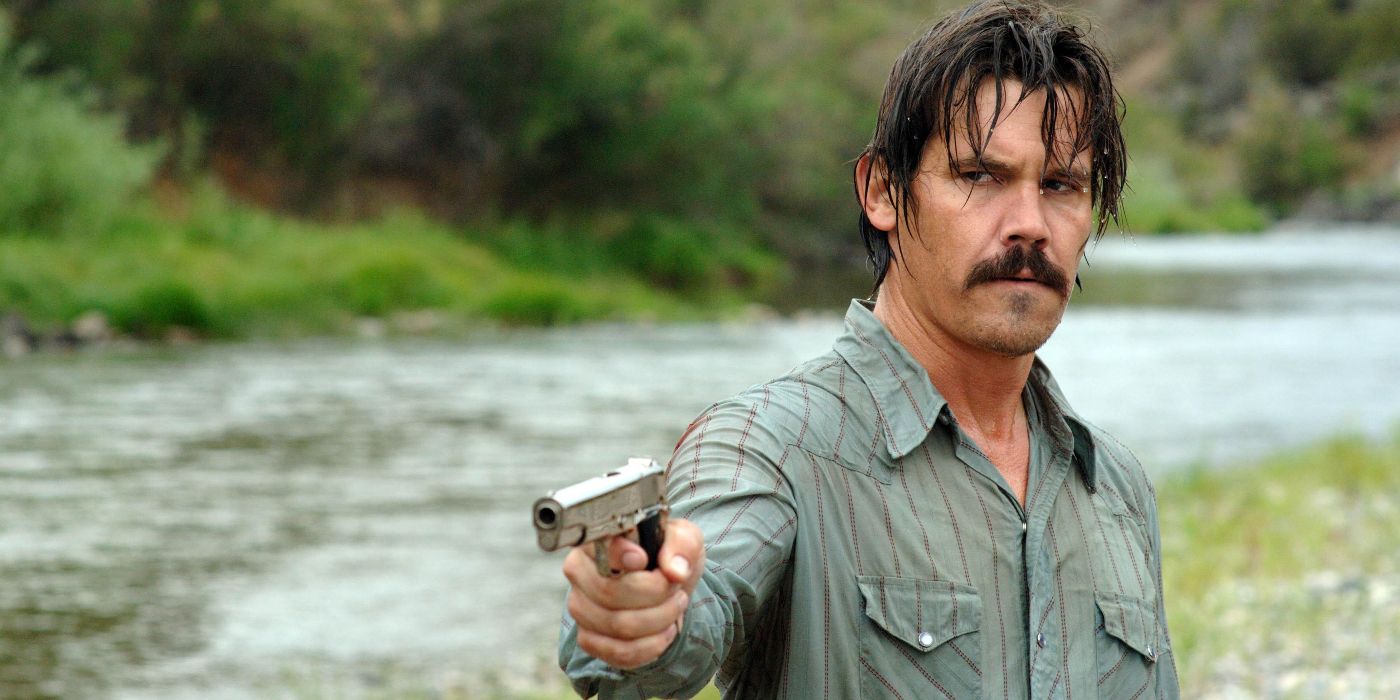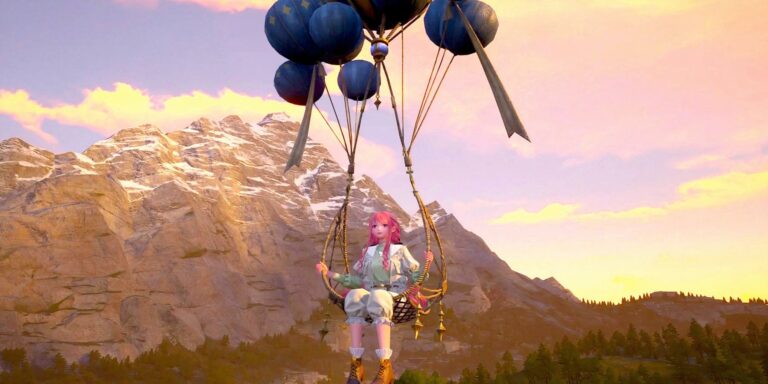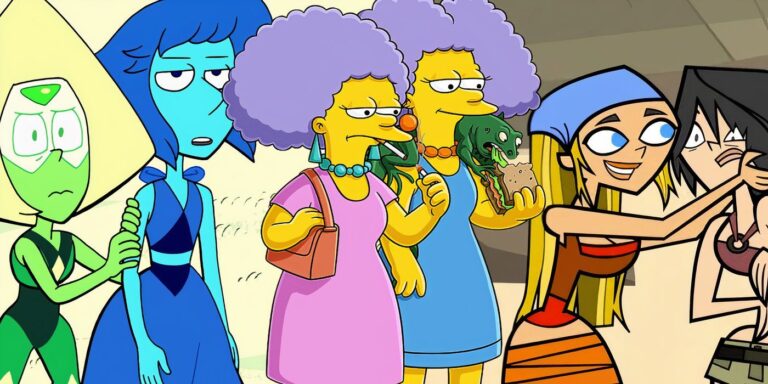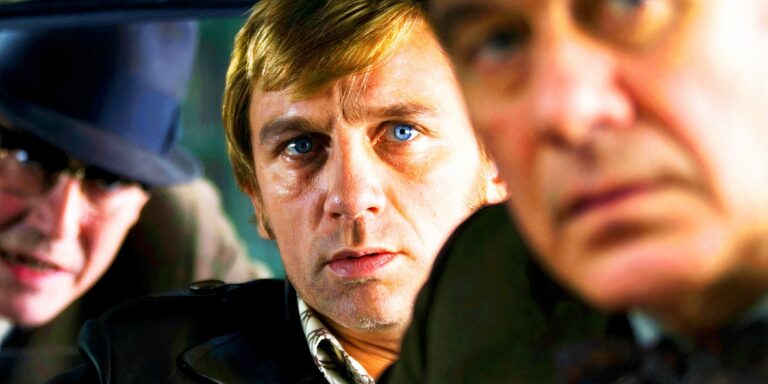No Country for Old Men star Josh Brolin discusses the divisive response to the film’s ending. In the Academy Award-winning film, Brolin played Llewelyn Moss, who discovers a significant amount of cash in the desert after a drug deal goes wrong, and is pursued by a ruthless hit man, Anton Chigurh (Javier Bardem). Instead of the expected showdown between these two characters, No Country for Old Men ends with Moss being killed offscreen, Chigurgh getting away, and retired Sheriff Ed Tom Bell (Tommy Lee Jones) sharing two dreams he had.
While having a conversation with actor and cinematographer Giovanni Ribisi via Interview magazine, Brolin revealed how he is still approached by people who did not like No Country for Old Men‘s ending. He explains that while these viewers express their distaste with how the 2007 film concluded, it demonstrates how effective the ending ultimately proved to be. Brolin also addressed how No Country for Old Men became a success despite defying Hollywood expectations. Check out Brolin’s comments below:
Well, the majority of the content that you see has no viscera whatsoever. You’re not taken in, you’re not manipulated, it’s not interactive, you don’t feel a part of it, you’re not cringing, you’re not guffawing. So you go, “Why is there so much content out there and yet, if you try to do something differently, you have an algorithm of people that are in charge of these algorithms that say, no, no, no, no, no?” You think people want that, but they don’t. They want to be surprised. No Country For Old Men is a great example. The end of No Country isn’t perfectly tied in a Hollywood bow. It was true to the book. I got pulled over by a cop once and he goes, “Hey, aren’t you the guy from that movie? I hated that ending.” I’ve heard it so many times. And I go, “How many times did you see it?” And he said, “Three.” And that’s the thing—they think they hate it, but their spirit is going, “Yes, yes, yes.” I know it’s become a cliche, but the Sam Beckett quote, “Ever tried. Ever failed. No matter. Try again. Fail again. Fail better.”
Ambiguous Endings Stand The Test Of Time
No Country For Old Men’s Ending Put It In An Elite Class Of Films
Brolin’s comments speak to the power of ambiguous endings and their ability to endure. No Country for Old Men continues to be discussed, celebrated, and rewatched in a way that many other films are not, including those that have won the Academy Award for Best Picture in the years since. This holds true for other films as well, such as Christopher Nolan’s 2010 film Inception, whose ending is still the source of much debate about whether Dom Cobb (Leonardo DiCaprio) made it back to his children or if he is still in a dream.
No Country for Old Men
won four Academy Awards, including Best Picture.
Long before No Country for Old Men or Inception, 2001: A Space Odyssey was another film that captured the imagination with an ambiguous ending as Dr. David Bowman (Keir Dullea) transformed into a giant fetus floating above Earth. 2001 is considered a science-fiction classic and one of Stanley Kubrick’s all-time greatest films. As frustrating as the endings for all three of these films can be, they make their respective conclusions more memorable and stick with viewers years later.
No Country for Old Men
stands the test of time, largely because of the questions it leaves for the viewers.
The lack of resolution and explicit explanations for certain details worked well for the characters in No Country for Old Men, Inception, and 2001. While it can be satisfying to see a story to neatly resolve all loose ends and explicitly answer all questions, this approach can also make a story forgettable and feel less worthwhile to revisit. No Country for Old Men stands the test of time, largely because of the questions it leaves for the viewers.
Source: Interview








